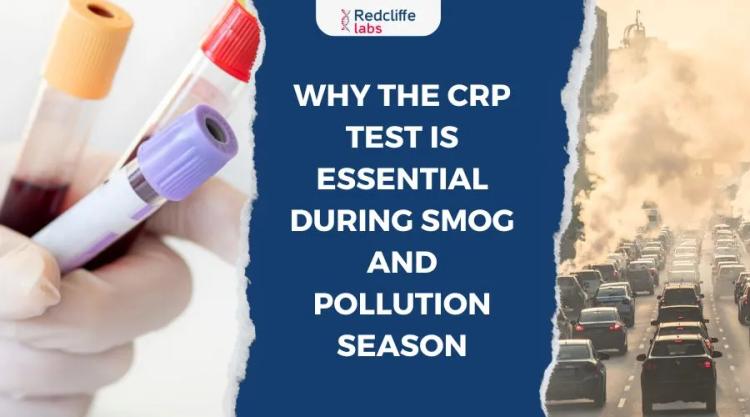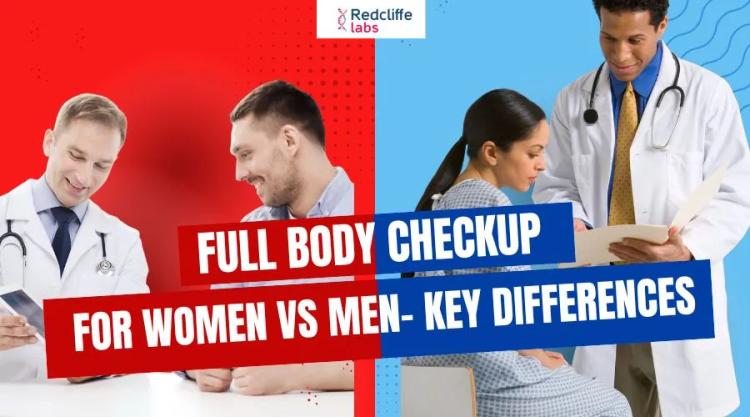Blood Tests for Chest Pain: Unraveling the Underlying Causes

Medically Reviewed By
Dr. Ragiinii Sharma
Written By Kirti Saxena
on Feb 3, 2024
Last Edit Made By Kirti Saxena
on Jan 7, 2025

Have you ever had a tight feeling in your chest or pain in your chest? It might be very scary! Right? But chest pain does not always signal a heart attack. There might be various other reasons that indicate something is not right. It could be like a muscle ache after a tough workout or a burning feeling from heartburn after that extra-spicy pizza. Sometimes, it could be a sign of something bigger, like a lung infection or heart problem. Your doctor will ask you some questions, and based on your medical history and family history, they can help you identify the cause of chest pain. While some blood tests can help identify the cause of chest pain. Let’s explore what this chest pain could mean and important blood tests to figure it out.
Common Causes of Chest Pain
When you have chest pain, the first thought might be a heart attack. But there is a wide range of suspects that may cause chest pain. These are-
Heart-related cause of Chest Pain
- Angina- When the heart is unable to get enough blood due to narrowed arteries, and it feels like there is tightness in the chest.
- Heart attack- A blocked artery can lead to a heart attack and cause intense pain or pressure.
- Pericarditis- Inflammation of the sac surrounding the heart can cause sharp, stabbing pain that worsens with deep breaths or lying down.
Lung-Related cause of chest Pain
- Pneumonia- This is a lung infection and causes chest pain while coughing and breathing.
- Pleurisy- Inflammation of the lining of your lungs that might cause sharp, stabbing pain while breathing and coughing.
- Pulmonary embolism- A blood clot lodged in a lung artery can cause sudden, sharp chest pain and shortness of breath.
Other common causes of chest pain
- Gastroesophageal reflux disease (GERD)- when the stomach acid backs up into your esophagus, this may cause heartburn, a burning sensation that may mimic chest pain.
- Inflammation in the gallbladder and pancreas may be the reason behind chest pain
- Muscle strain or costochondritis- Inflammation of the cartilage connecting your ribs can cause sharp, aching pain in your chest that worsens with movement.
- Anxiety or panic attacks- Stress may trigger chest pain, and the person might feel difficulty in breathing, a fast heart rate, and fear.
- Collapsed lung- This happens when air leaks from your lung into the space around it, causing the lung to partially or completely deflate. The chest pain can be sudden and severe.
Chest pain doesn’t need to be due to the above reasons only. If you are experiencing severe chest pain, then consult your doctor. By examining your condition, your doctor may help identify the cause and recommend some treatment options. Seeking medical attention and timely and accurate diagnosis can aid in avoiding severe health conditions.
Symptoms may occur with chest pain
With chest pain, people complaints various other symptoms, including-
Heart-related symptoms
- Shortness of breath
- Dizziness Sweating
- Nausea or vomiting
- Fatigue
- Discomfort or pain radiating to the arm, jaw, neck, or back
Pulmonary (Lung-Related):
- Coughing
- Wheezing
- Fever
- Chills
- Weight loss
Gastrointestinal symptoms:
- Heartburn
- Acid reflux
- Indigestion
- Bloating
- Belching
- Difficulty swallowing

Essential Blood Tests for Chest Pain
Mild chest pain can become a severe medical emergency if ignored, so seeking medical attention timely is important. Here are some blood tests that your healthcare provider will order-
- Troponin I and Troponin T- Creatinine Troponin is a protein found in the heart muscle. High troponin levels in the blood might be an indicator of heart muscle damage that increases the risk of heart attack or myocarditis. The Troponin test is a preventive test to find the cause of heart-related diseases. Consult your doctor and take a Troponin I and Troponin T test to know the exact cause of chest pain.
- Creatine Kinase (CK)– CK is an enzyme found in various tissues of skeletal muscle and heart muscle. High CK levels may indicate heart attack, skeletal muscle injury, Myocarditis, and Pericarditis. Therefore, doctors will consider your medical history, symptoms, and other test results alongside CK levels to reach a diagnosis.
- C-reactive protein (CRP)- This protein rises in response to inflammation throughout the body. The test is not specific to chest pain, but high CRP levels may suggest conditions like pericarditis) or pulmonary embolism. You can take a C-reactive protein test as a preventive test to know the cause of chest pain.
- ESR Test- The ESR test detects the inflammation in the body. A high ESR could indicate various causes of chest pain, including infections, autoimmune diseases, or certain cancers.
- CBC – The test measures the RBC, WBC, platelets, and other important blood components. The test helps identify the anemia or infections that sometimes cause chest pain.
- Electrolytes Test– Imbalances in electrolytes like potassium or magnesium can sometimes cause chest pain.
- Lipid Test– High cholesterol and triglycerides can indicate a higher risk of coronary artery disease, a potential cause of angina, which might cause chest pain due to decreased blood flow to the heart.
- Brain Natriuretic Peptide (BNP)- BNP is a hormone secreted by your heart and helps to manage blood pressure and fluid balance, but high levels of BNP can cause trouble. The BNP levels provide valuable insights into your heart health. BNP rises when your heart struggles to pump efficiently and increases the risk of heart failure, heart valve problems, atrial fibrillation, and high blood pressure. Get the BNP test as a preventive test to know heart-related issues, guiding further investigation and treatment.
- Homocysteine – High homocysteine levels, also known as hyperhomocysteinemia, can damage blood vessel walls, build plaque, and increase the risk of heart attack, stroke, and other cardiovascular issues, which sometimes can manifest as chest pain. Therefore, understanding your homocysteine levels within the context of your overall health and other risk factors.

Don’t Ignore the Clues- Get a Blood Test for Chest Pain
If you have chest pain, don’t wait to consult your doctor and get tested. Pay attention to your chest pain, such as location, intensity, duration, and triggers, and inform your doctor; this will help to diagnose the cause. Inform your doctor about any past medical history, medications you are taking, and lifestyle factors that might be relevant. Consult your doctor and take a blood test for chest pain by narrowing down the possibilities. Early diagnosis and intervention can significantly affect your health and well-being. A timely understanding of the cause empowers your doctor to initiate the right treatment, preventing complications and ensuring a better recovery.
Leave a comment
2 Comments
Ankit goyal
Jun 28, 2025 at 1:17 PM.
Price related issue
Myhealth Team
Jul 3, 2025 at 11:21 AM.
Hi, for price-related issues, you can directly call our customer care at 8988988787.
Ezekiel SW Tengbeh
Jun 16, 2024 at 1:46 PM.
Thanks to the publisher of this article, it's very educative. I have learned so many new things about chest pain.
MyHealth Team
Jun 17, 2024 at 10:50 AM.
We are very glad you have liked the information.



